|
Price: USD2099 ( Exclude shipping cost . Include
metal remote controller that need two AAA batteries support by users .)
Organic glass top board
price : USD30
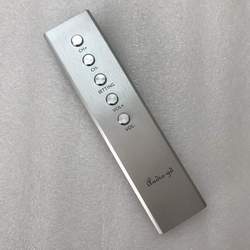
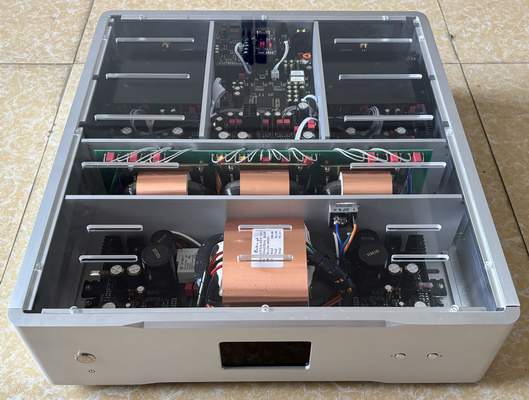
Two chassis versions available,
customer must inform while place the order ,otherwise we ship the
edition randomly:
R-27MK2 Black (In stock)
R-27MK2 Silver (Out of stock now)
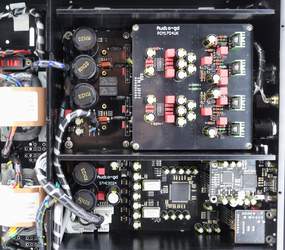
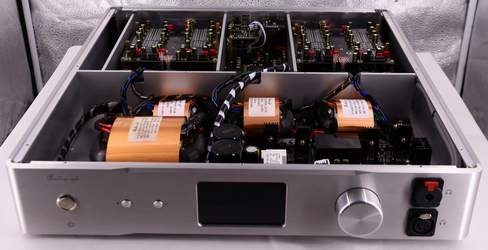
Please send your address, name to
audio-gd@vip.163.com
get the quote.
Please note:
The R-27 MK2 sound is ultra revealing, if connected with the low grade
source or play the low quality music like the MP3 format that you
only can hear the low quality sound .
Click to download the
driver of
Amanero
combo 384
Design overview:
Fully discrete parts are used in a truly balanced current
transmission design.
4 sets of fully discrete and
independent DSD hardware decoders.
8 sets of fully discrete R-2R DA
modules to form a two-channel balanced push-pull decoder.
2 top-notch Accusilicon TCXOs with
frequencies of 90 and 98MHz provide synchronization for the whole
unit, and they are applied to the playback of all data rates without
PLL up-conversion.
Both the USB and HDMI
inputs are equipped with isolators, and a linear power
supplies to separately supply power to the USB and HDMI modules
before the isolators to prevent interference from signal sources.
a, USB uses a two-way
transmission isolator, which not only transmits IIS signals to the
FPGA processor, but also receives the synchronous clock signal sent
by the FPGA processor. The USB interface itself is no longer
equipped with clocks. The synchronous clock is applied to make the
signal transmission more accurate and upgrade sound quality to an
excellent level. The sound quality is improve obvious.
b, the HDMI module is now equipped
with an independent isolator to improve the sound quality of the
HDMI input.
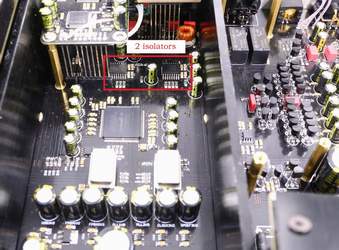
Through firmware
update can conversion the IN2 coaxial input become an external 10MHz clock input
( 75 ohms ).
All digital mode settings can
be changed on the front panel live.
A firmware upgrade port is
featured on the rear panel of the machine (no need to open to take
off the cover to upgrade the firmware).
Unique real non-feedback ACSS headamp
applies four channels of non-feedback output
stages composed of 8 pieces of transistors, every piece has
15A/150W performance. The capacitance of the whole machine reaches
as high as 25,000uF. Three R-core transformers are used with total
power of 150W.
Large output power 15W at 25 ohm, 1300mW at 300 ohm
that can drive most headphones easy.
Mulriple information display, support
user custom display information area .

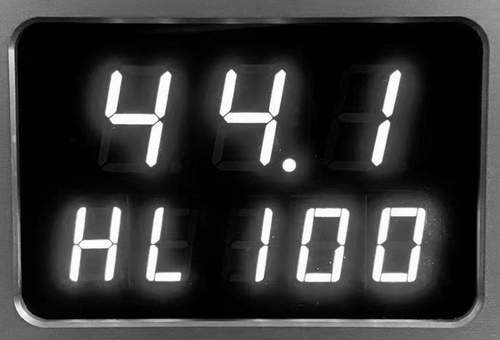
More digital technology
explain of the R-27 MK2 , please refer the R7HE MK2.
http://www.audio-gd.com/HE/R7HEMK2/R7HE_MK2EN.htm
Unique technology apply in R-27
MK2:
1,Unique Jitter elimination technology:
Jitter has always been regarded as
the root cause for sound quality of digital systems to be inferior
to that of high-end analog systems.
In some traditional DAC designs, the clock
processing method is to follow and to restore the clock of the
signal source, and some designs also include the capacity of
reducing jitter, but with limitations when the jitter level is
large.
This common solution allows getting good
measurements in lab tests. But in actual use, most signal sources
have large jitter levels, so that the resulting sound quality will
not be satisfactory.
Some DACs worth only USD150 measure better
then than some well-selling DACs of foreign brands worth tens of
thousands. Who would think that this USD150 DAC is better? This
reminds me of when the China Insurance Research Institute tested a
direct collision between two brands of cars not long ago, and
netizens commented on the car that scored higher in the test: "It
has not failed the test, but it has not won the actual battle
either."
The following three product charts are from
three DACs of different brands, guess which one is the most
expensive? (The answer is at the bottom of this page)
Product A
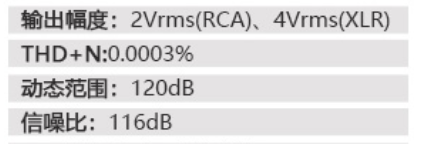
Product B
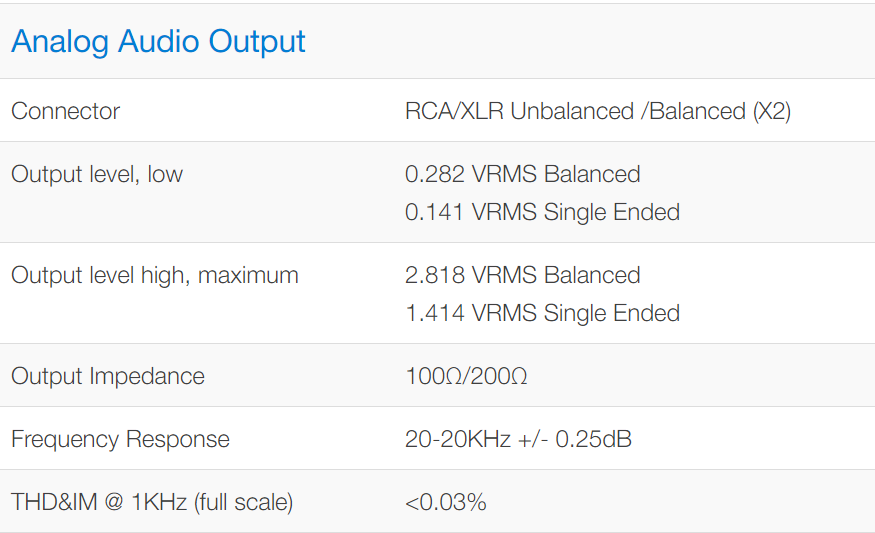
Product C
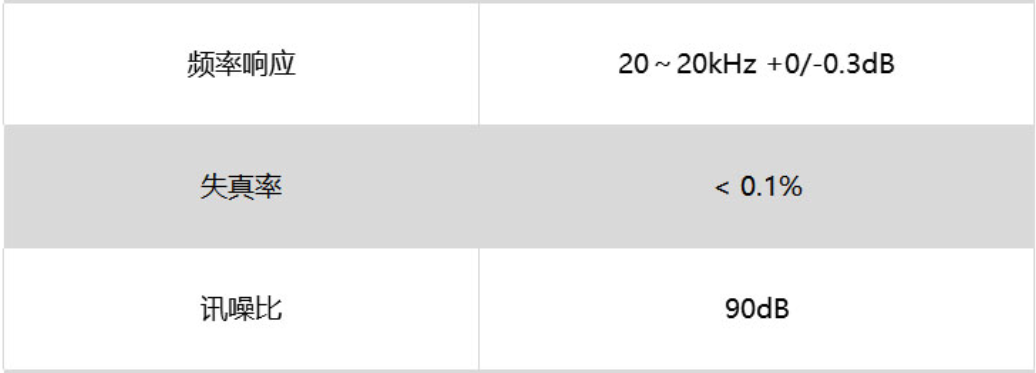
In order to completely
eliminate the influence of jitter in the incoming signal, the R-27 HE
uses an asynchronous clocking process.
First it reads and stores
a considerable amount of signal source data to RAM, discard the
clock of the signal source, and directly use the high-performance
built-in Accusilicons to clock the output from the RAM. Since both
data and clock are handled by the FPGA, the impact of transmission
on jitter is neglectable. The jitter level is essentially the same
as what is specified for the TCXO clocks used by the R-27 HE.
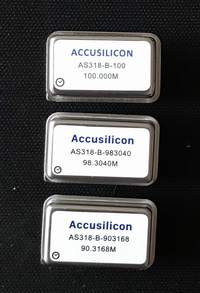
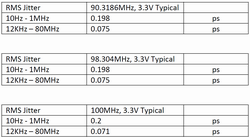
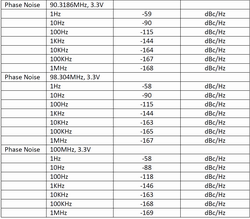
The key to this processing method is to
ensure the integrity of data transmission, which is our technical
secret. Realize that as soon as a single data sample within a
million is lost in the transmission, a sharp and obvious cracking
sound, like static, or a scratch on a vinyl, will be heard during
playback.
Mr. He is passionate about music and, too him, listening sessions
are a source of inspiration for new design ideas. Our cie does not
only have the advantage of having full control over software and
hardware technology, we also possess a correct understanding of
music reproduction. Without having to rely on outsourcing for R&D,
we can at any moment listen to the gears during development,
allowing the pursuit and realization of the most realistic sound
reproduction.
Because the local clock and the signal source clock are completely
isolated and run independently, the traditional jitter measurement
methods can not be applied, instead a special data acquisition
circuit is required to evaluate its level. For human beings, the
best test method is always through listening tests. A jitter-free
sound is very realistic and natural, as clear as pure water, and
very involving.
2,Unique real non-feedback ACSS headamp/preamp
technology:
R-27 MK2 built in a true balanced design
applying the newest ACSS design . It seems complex , but in fact they are
the most simple design the world has ever had , their a lot
components to process the power supply. The R-27 MK2 built in amp only has a
single " voltage" gain stage to process signals, but works in ACSS mode
so in fact it is a current gain stage instead of voltage gain stage,
whereas normal OPA chips already include two or three voltage gain
stages. The simplest and shortest signal journey brings out the most
neutral and least colored sound.
R-27 MK2 applies ultra-low distortion
single stage ACSS amplifier and soldered directly on the motherboard .
The gain stages and the diamond cross output stage working on
pure class A state.
The ACSS is
a non-feedback
technology made with fully discrete amplifiers. Most people know the
global
feedback design can offer better specs in test measurements, and
non-feedback can't do well in test measurements but can offer better
sound for the human's ears. Here is a conflict of the classic circuits.
But the ACSS opens a new field, it can offer a least coloration sound
which is more neutral with very low distortion and high linearity. So
it can retain the dynamics, detail and neutral sound but not sound
bright or harsh.
All signal gain is in current, achieved
by the unique, superb open-loop multiple output current mirror.
Incomparably precise and ultra-low distortion in the gain signal is the
result. The signal path is balanced throughout and all transistors work
in class A mode.
R-27 MK2 applies
four channels of non-feedback output stages composed of
8 pieces of transistors, every piece has
15A/150W performance. The
capacitance of the whole machine reaches as high as 25,000uF.
Four R-core transformers are used with
total power of 150W.
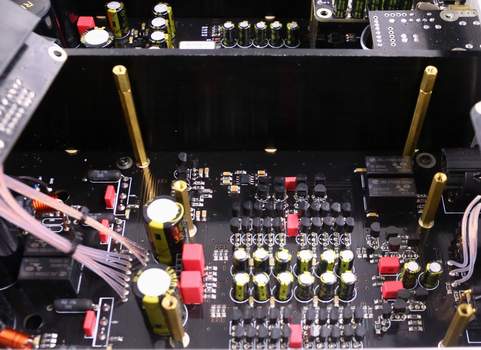
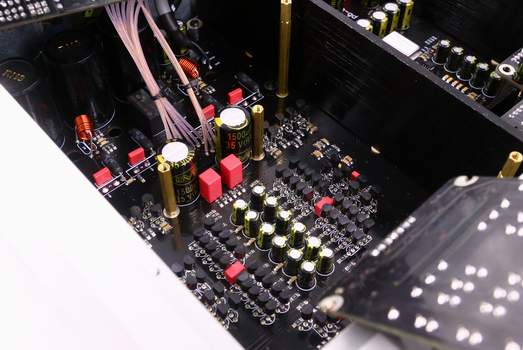
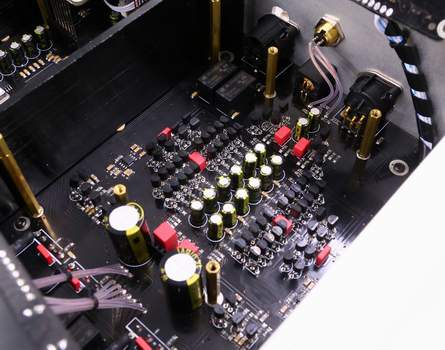
3,Unique
I/V conversion volume control
technology:
The volume control is also different from
conventional technology. Conventional volume control technology is
the volume control implement in the analog amp
input stage through a volume pot to reduce the signal . The
volume pots quality effect the sound quality direct , the low
quality volume pot cause lost the detail and channels imbalance
cause the soundstage distortion . Even the high
performance volume pot ,in the attenuation then gain the signal
mode ,still cause the detail lose and cause the S/N worst .
In
the R-27 MK2 , we applied the I/V conversion volume control ,
the volume control just a
variable passive I/V conversion place at the ACSS amp output ,
where the output is the current signal, not the voltage signal. The
volume control is I/V conversion, and the volume depends on the
current (I) conversion to the voltage (V). (Like R-2R D/A chips
output passive I/V conversion)
It can keep the signal frequency band flat and
not lost any detail.
It can't degrade on sound
quality in every volume level .
The volume
control quality is much important in the real balance gear . It must guarantee the
four channels signal control exact to achieve the performance of the
real balance gear . If the cool and hot of the balance signal
can't guarantee exact, the balance output will has large distortion
cause the sound quality and performance even much worst than a
single end gear , waste the balance gear design and the cost.
In R-27 MK2
is applied a four channels digital control relays based volume
control, through changing the
tolerance 0.05% resistors to control the volume for avoid channels
imbalanced ,achieve the best performance and sound quality of
the gear.
R-27 MK2 have 100
steps volume control, applied Supper Exponential Volume
Characteristic, easy match the volume with different power amp
and speaker .While change the volume, the different relays break or
close, it may had slightly switch sound on output and disappear
while stop change the volume.
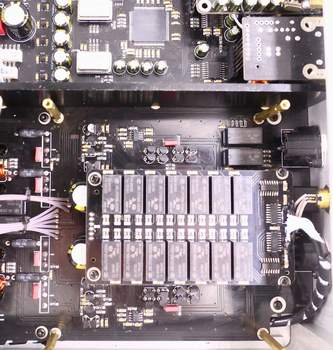
*******************************************************************
Product A :USD150 DAC

Product B :USD5000+ DAC American P brand DAC

Product C : USD10000 British E brand RIAA front
 |
